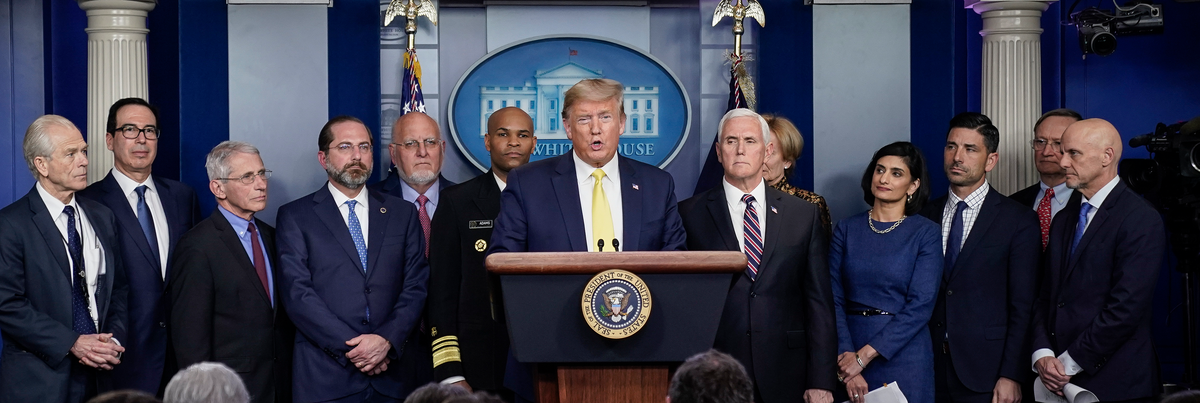At a coronavirus briefing last Thursday, President Donald Trump mentioned injecting disinfectant in the body as a possible way of treating coronavirus.
“I see the disinfectant, where it knocks it out in a minute, one minute. And is there a way we can do something like that by injection inside or almost a cleaning,” Trump said.
Companies quickly pushed out statements emphasizing that Americans should not ingest disinfectant for any reason. The controversy over Trump’s statements continued for several days, though Trump later defended the comment as “sarcasm.” Some respondents in the latest Economist/YouGov Poll, conducted over the weekend, may not have noticed the brush-up.
More than one in four Americans (28%) claim they had heard nothing at all about ingesting or injecting disinfectant as a COVID-19 treatment. That awareness seems politically based, with Republicans the most likely to say they haven’t heard anything about it (42%) compared to half of Democrats (50%) who have heard “a lot” about it.
Those who have heard of the possible use of disinfectant reject it. More than eight in 10 who have heard about it (85%) call it both ineffective and dangerous. Just 8 percent of those who have heard about it believe it is even possibly effective. While Republicans who have heard about disinfectant as a treatment are twice as likely (12%) as Democrats who have heard about the treatment (6%) to think it could be effective, majorities in both parties reject this outright.
Hydroxychloroquine, a drug that is normally used to treat malaria and has been suggested by Trump as a treatment, draws more positive views. There is much less of a party difference in awareness on Hydroxychloroquine. It gets tentative support: four in ten of those who have heard of it think it could possibly be effective; nearly as many, 38%, say it is ineffective or dangerous.
When it comes to hydroxychloroquine, party identification has a large impact, likely because of the President’s endorsement. Democrats reject hydroxychloroquine as ineffective or dangerous, while a majority of Republicans believe it possibly could be effective. One in five in each party who are aware of the two Presidential-proposed treatments aren’t quite sure how to judge them.
There is one non-medical treatment that most Americans see as an effective way of managing the coronavirus: social distancing. Majorities of both Republicans (80%) and Democrats (90%) agree that social distancing is either “very effective” or “somewhat effective” in treating coronavirus.
Despite their rejection of at least one medical suggestion made by the President, Republicans continue to express confidence in the medical advice the President offers—although, that trust has slipped a little in the last week. Two-thirds of Republicans (66%) this week trust the President’s medical advice, down from three-quarters (75%) a week ago.
Americans overall are more likely to trust medical advice from Dr. Anthony Fauci, Director of the National Institute of Allergy and Infectious Diseases, than they are to trust the President, but more Republicans say they trust the President than say they trust Fauci. Still, a majority of Republicans trust Fauci.
See the toplines and crosstabs from this week’s Economist/YouGov Poll
Related: Most Americans have not heard of Remdesivir, the experimental COVID-19 drug
Image: Getty









